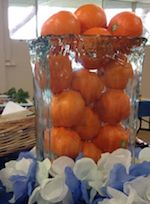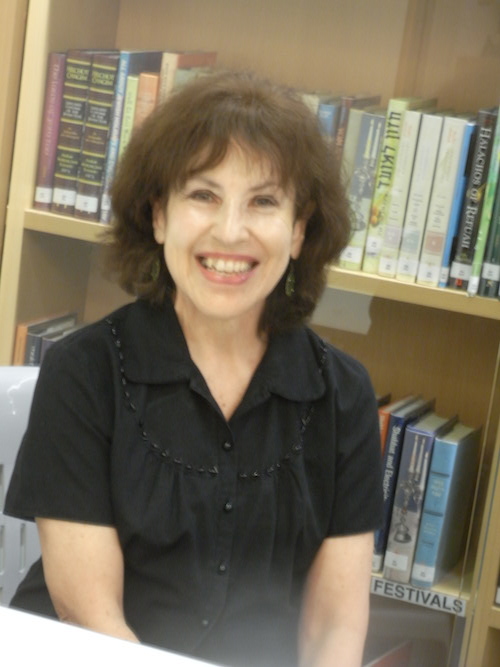Daily Minyan - President's Message 15/07
15/07/2016 02:52:22 AM
| Author | |
| Date Added | |
| Automatically create summary | |
| Summary |
I remember well the day my father died. It was January 29, 1969. He worked the afternoon shift (4.00pm to midnight) at a big sorting station of the US Post Office and would often sleep late into the mornings. I was 16 years old; it was my last year of high school. I did not go to school that day because I was going to an interview at Columbia College, where I had applied for university admission (and subsequently studied). My mother, who was a social worker with the New York City Welfare Department, telephoned a little before noon and asked me to go wake up my father and make sure that he was alright. I went in my parents’ bedroom but he had died in his sleep. My father, Ralph, was 54 years old. He had suffered his first heart attack three years earlier, some 6 weeks before my bar mitzvah.
My parents had rarely gone to shul. They sent me and my two younger brothers (Andrew, a year younger, and Paul, 7 years younger) to Talmud Torah (an after-school Jewish studies program) and I went on to Hebrew High School (also run in the afternoons and Sunday mornings). After my father died Andrew and I went to shul to say kaddish. It was the middle of winter in New York and it was pitch black and freezing when we walked from our apartment to shul to be there for the start of the 6.30am minyan. Over the next month or so we came to know the other regulars: among them Mr Zlotnick, the gabbai who ran everything, Mr Klein and Mr Adler (both saying kaddish, too) and Mr Beispiel (an older Yiddish speaker). Some mornings we were invited to a side room where there were lockers and offered a shot of schnapps, which kept burning its way down my throat on the bus to high school. We learned to put on and wrap up tefillin (Mr Zlotnick found two pairs for us to use) and learned to daven (the siddurim we had then were not nearly as easy to follow as our Artscrolls) – after several months we could say the whole of the Shemoneh Esrei in time with the baal tefillah. Being in shul early in the morning and then again in late afternoon was demanding and we were happy when our 11 months finished. But we felt embraced by the shul family and since then I always feel comfortable and at home in any shul I visit in the world. It also helped with the mourning process.
In October 2007 my mother, Ruth, died of cancer. She was 84 years old; she was only 45 when my father died. I went to New York for the funeral and the shivah, then came back to Sydney and attended daily prayer services at South Head. The daily routine was demanding but again I loved being part of the shul family here; I got to know much better other regulars, like the late Stephen Bolon and Lenny Fine, who used to sit behind me. It is a nice feeling that a dozen or so other people care that you are with them in shul and are worried if you do not show up. As was the case nearly 40 years earlier, saying kaddish at shul helped me with my mourning. My davening improved more, to the point where, after a few months I became comfortable in leading prayers at Minchah and Maariv (Shacharis is still a challenge for me).
Having regular daily services is the mark of an important shul. South Head is such an important shul. Services are held in the Beis Midrash (which also houses our library). Morning services start at 6.45am most days, 6.30am on Mondays and Thursdays and Rosh Chodesh and minor holidays (when the Torah is read), and 8.00am on Sundays and public holidays. The daily morning prayers usually take 45-50 minutes. We have a monthly cycle for Tehillim (Psalms). Rabbi Sebban gives a daily Dvar Torah and there is a small breakfast afterwards with study of the weekly Parsha. Minchah starts at different times (5.05pm this week) so that Maariv can be davened after it is dark; in the summer, Minchah starts at 6.30pm. Rabbi Milecki gives a daily Dvar Torah between Minchah and Maariv. The afternoon and evening services together last about 35-40 minutes. (I remember during my mourning period Rabbi Milecki gave an excellent series of talks on the meaning of the prayers of the Shemonah Esrei.) It is customary for each person to give a few coins as tzedekah to one or more of the 10 charity boxes we have. Sometimes, if a congregant has a yahrtzeit or special celebration he brings a bottle of whisky and we share in a L’Chaim. While most of the time only men come to services, women are welcome and the room has curtains that can serve as a mechitzah.
At South Head we are fortunate that usually we have at least a minyan (10 men) present for the scheduled start of the service. Most days we have 15-20 persons participating in the prayers.
* * * * *
South Head is an important shul and the daily minyan is the backbone of the shul. If you have not been to the daily minyan or not been for a while or have a yahrtzeit, please come and be part of our shul family.
Mon, 25 August 2025
1 Elul 5785
Contact Us:
Today's Calendar
| Rosh Chodesh Elul |
| Shacharis : 6:30am |
: 9:10am |
: 5:30pm |
| Mincha : 5:35pm |
: 5:57pm |
This week's Torah portion is Parshas Shoftim
| Shabbos, Aug 30 |
Candle Lighting
| Friday, Aug 29, 5:17pm |
Havdalah
| Motzei Shabbos, Aug 30, 6:13pm |
Rosh Chodesh Elul
| Monday, Aug 25 |
Full Calendar Here
Happy Jewish Birthday!
Monday 1 Elul
- Toby Levine-Evans
We wish "Long Life" to:
Monday 1 Elul
- Elaine Bolon for father, Gerald Sender
Wednesday 3 Elul
- Cecille Levin for husband, Gerald Philip Levin
- Gary Weiss for uncle, Berl Yisosko Dov Frankl
Halachik Times
| Alos Hashachar | 5:09am |
| Earliest Tallis | 5:38am |
| Netz (Sunrise) | 6:23am |
| Latest Shema | 9:10am |
| Zman Tefillah | 10:06am |
| Chatzos (Midday) | 11:58am |
| Mincha Gedola | 12:25pm |
| Mincha Ketana | 3:13pm |
| Plag HaMincha | 4:22pm |
| Shkiah (Sunset) | 5:32pm |
| Tzais Hakochavim | 5:57pm |
| More >> | |
South Head Catering

South Head Catering is well and truly on the map! What began as a small initiative to provide a little variety and some new options by the South Head Ladies Guild has turned into a highly successful venture with people absolutely raving about the service and products on offer.
Want to know more? Want to help out and volunteer? Visit our Catering page.
Mikvah Aziza
Mikvah Aziza at 662 Old South Head Road, Rose Bay has re-opened.
Please click here for details:
South Head Library
 Welcome to the Sandra Bransky Library & Youth Synagogue, located on the first floor and including the Beit Midrash. Drop in any Sunday morning between 9 - 11am.
Welcome to the Sandra Bransky Library & Youth Synagogue, located on the first floor and including the Beit Midrash. Drop in any Sunday morning between 9 - 11am.
I look forward to helping you get the most out of our beautiful world of books at South Head.
Sylvia Tuback, South Head Libarian
southheadlibrary@gmail.com
SHOFTIM
Rose Bay, NSW 2029
(02) 9371 7300
Privacy Settings | Privacy Policy | Member Terms
©2025 All rights reserved. Find out more about ShulCloud



